Canon PowerShot V10 review
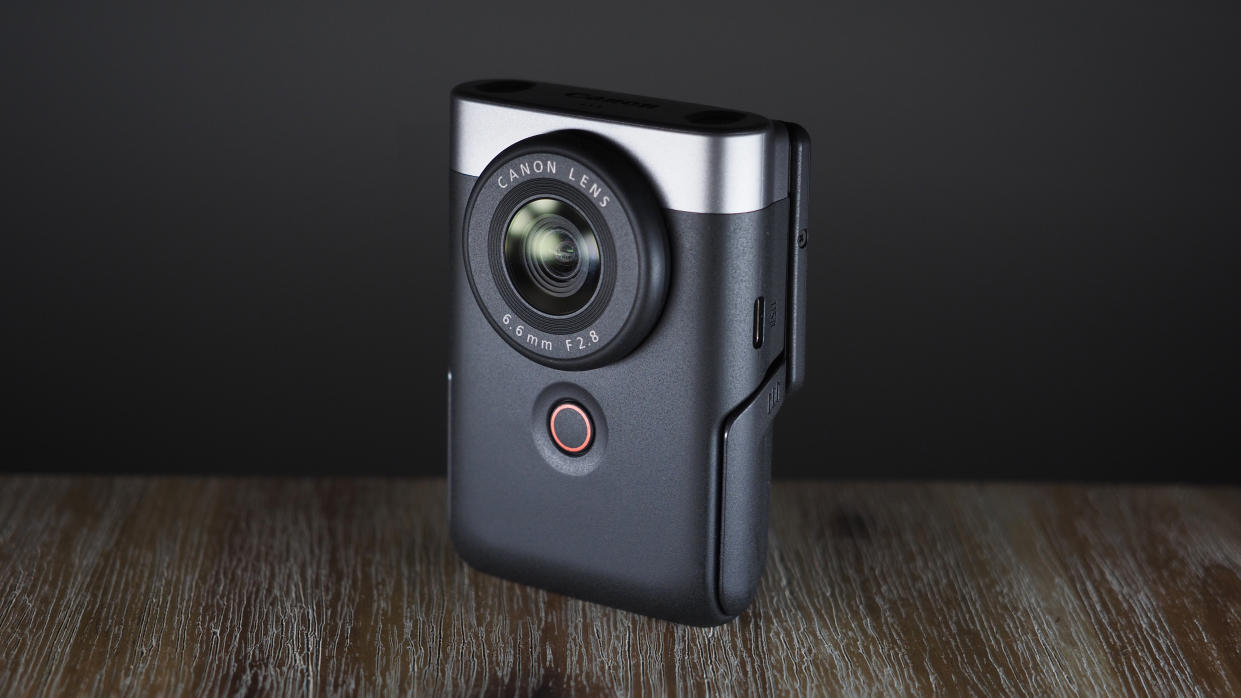
The Canon PowerShot V10 is unlike any other camera you've seen. In fact, it has much more in common with your phone – and there's a good reason for that.
Canon's intention for the Canon PowerShot V10 is something we've been waiting years for: a vlogging camera that isn't just a regular camera body with video-oriented specs, but a camera that has actually been designed from the ground up specifically for vlogging.
The result is a device that is, operationally, very similar to the best camera phones when it comes to capturing video – which is to say you simply tap a button and point it, without having to faff with lenses, log modes, shutter speeds, frame rates or even tripods. So it's ideal for spontaneous video capture, social media sharing, streaming – anything where you just want to film – not faff. And it's ideal for non-videographers who wish cameras were as straightforward as phones.
Is the Canon PowerShot V10 finally the camera that people will actually reach for, instead of using their phones, to shoot snippets of video?
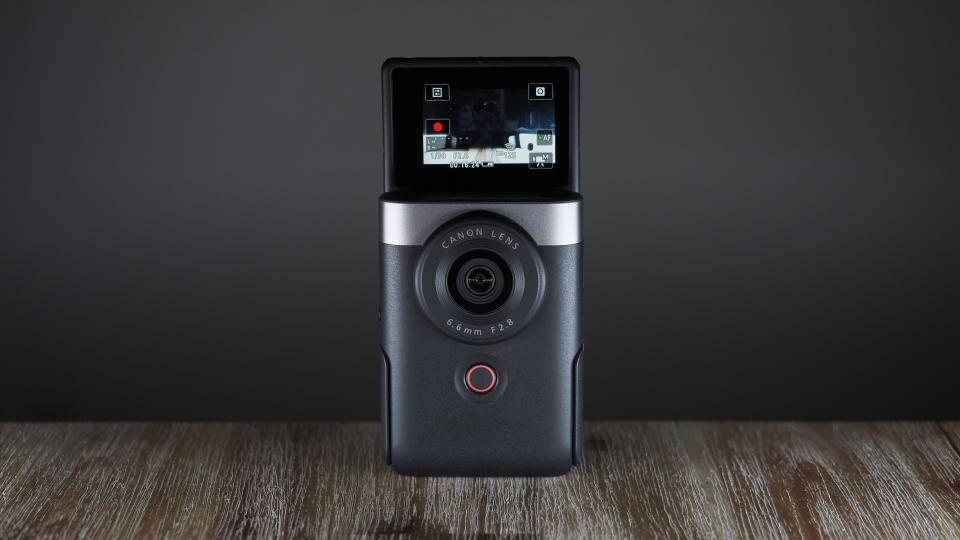
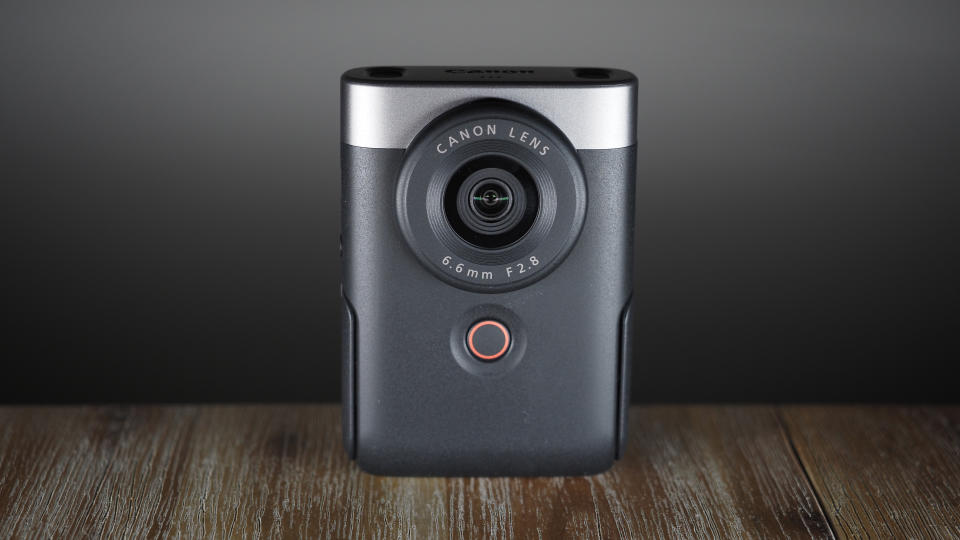
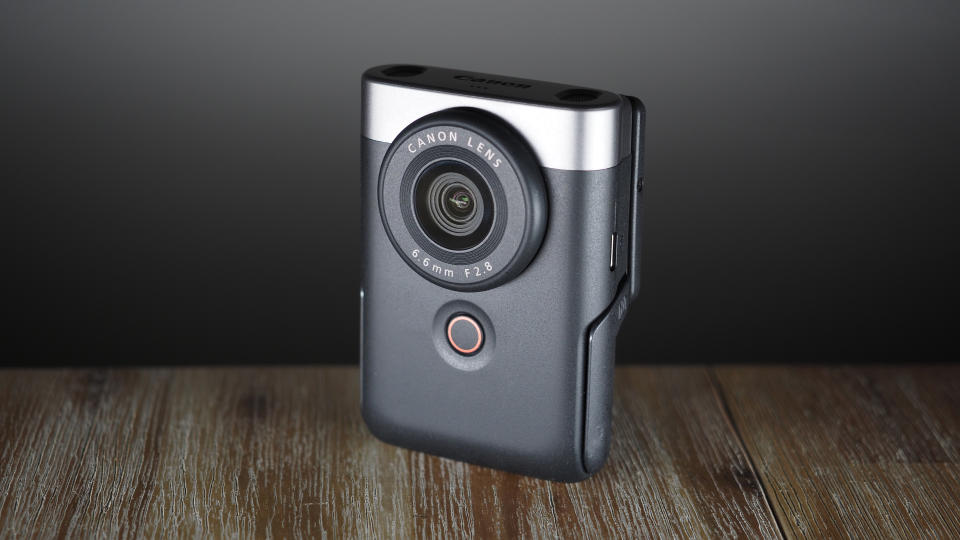
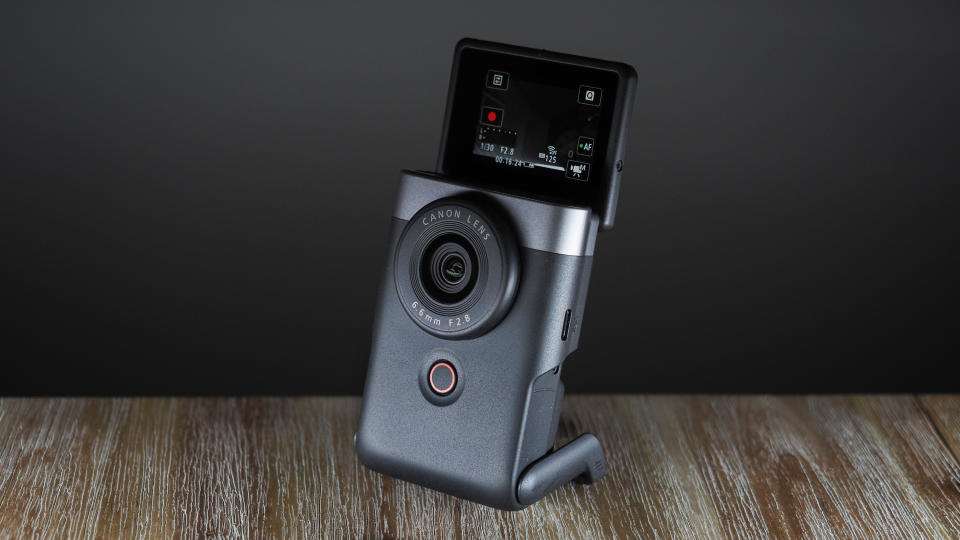
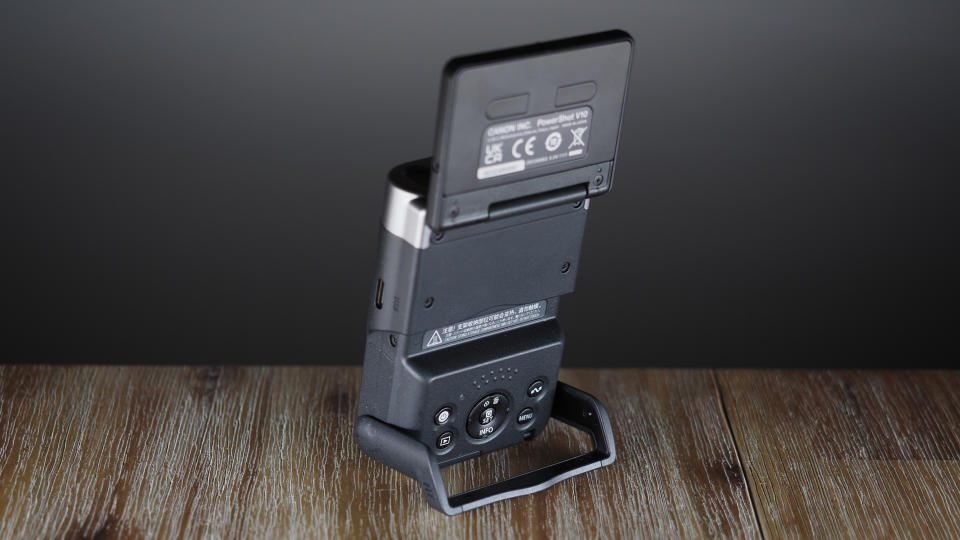
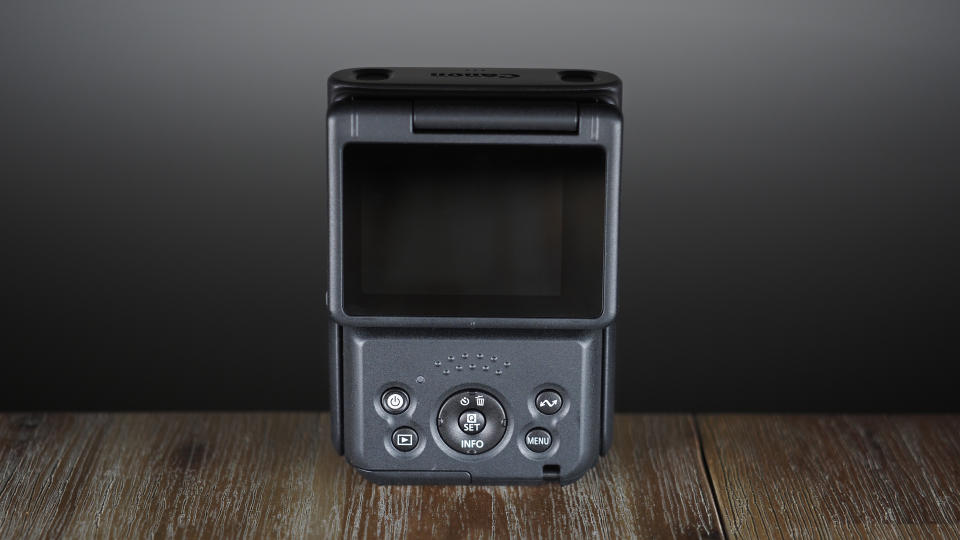
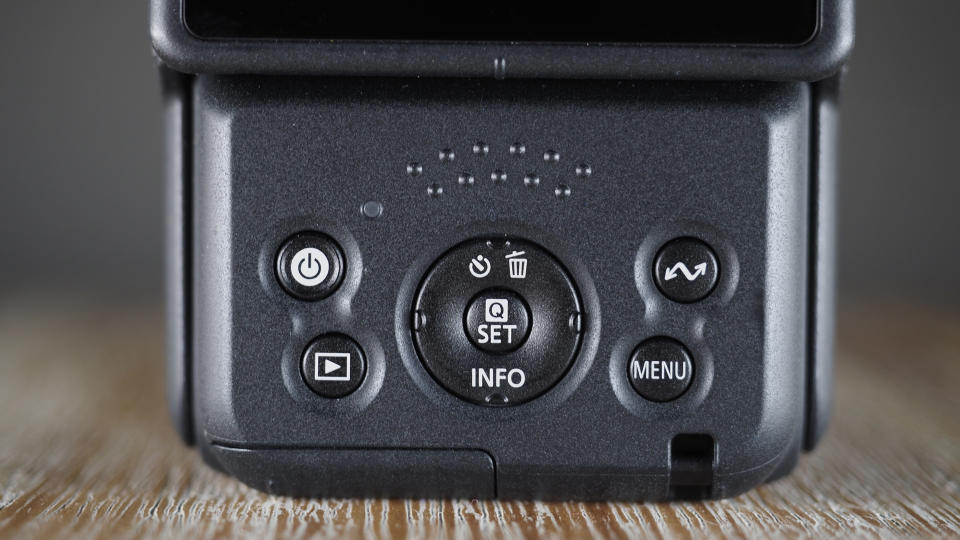
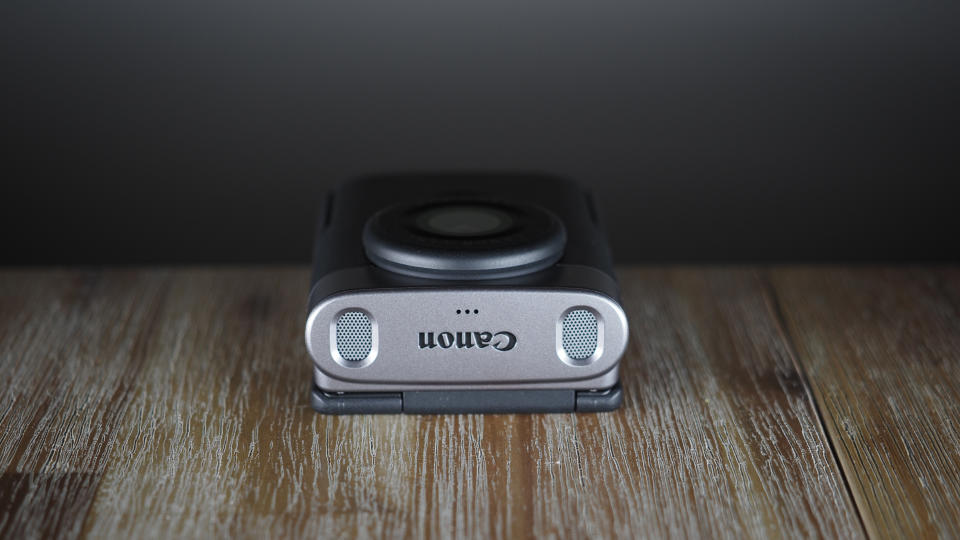
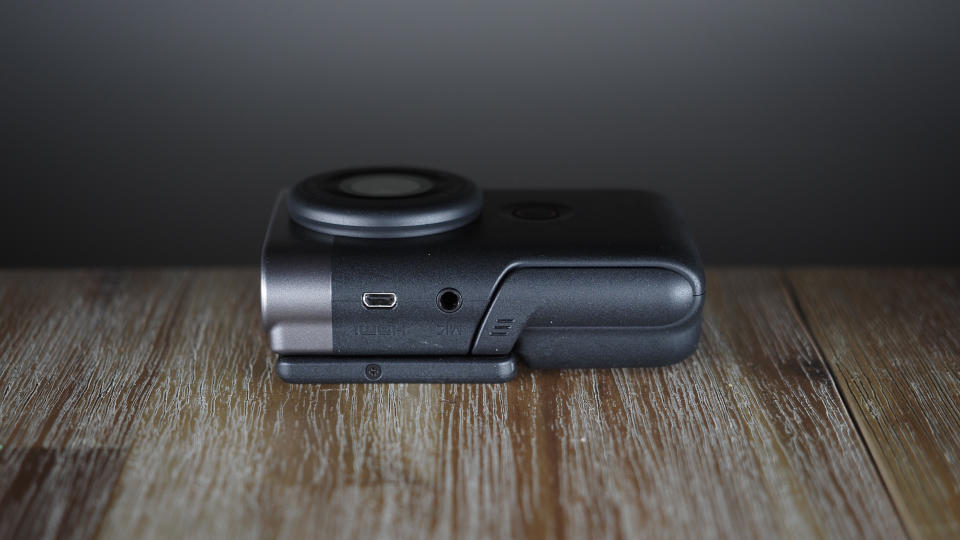
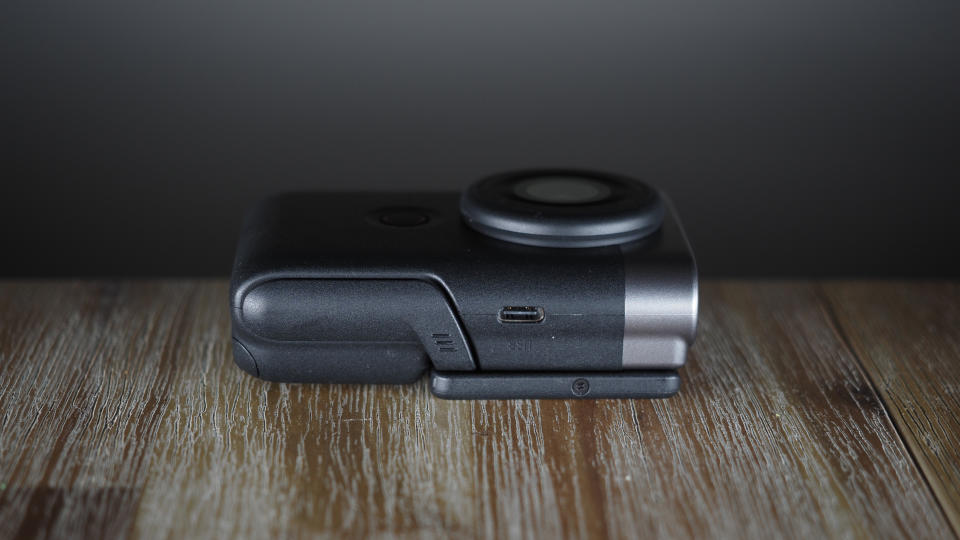
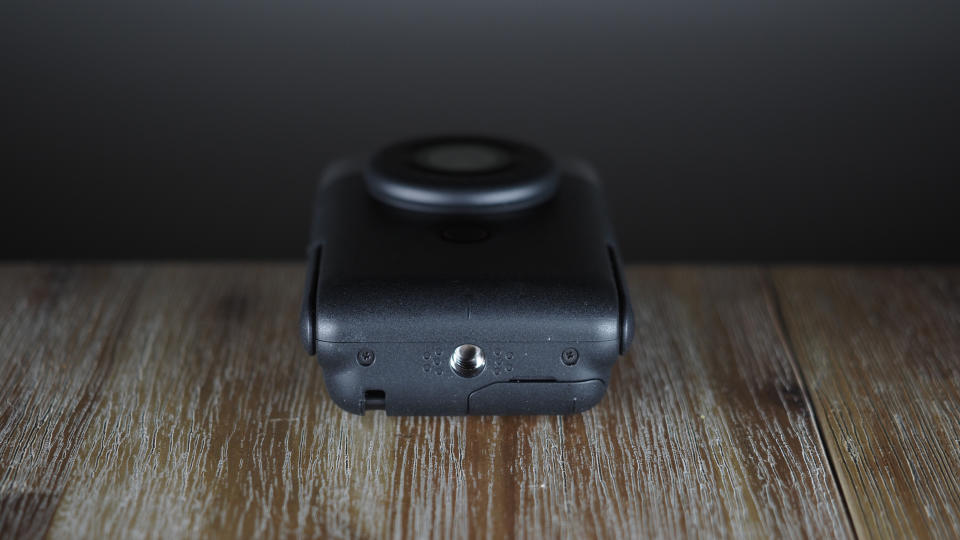
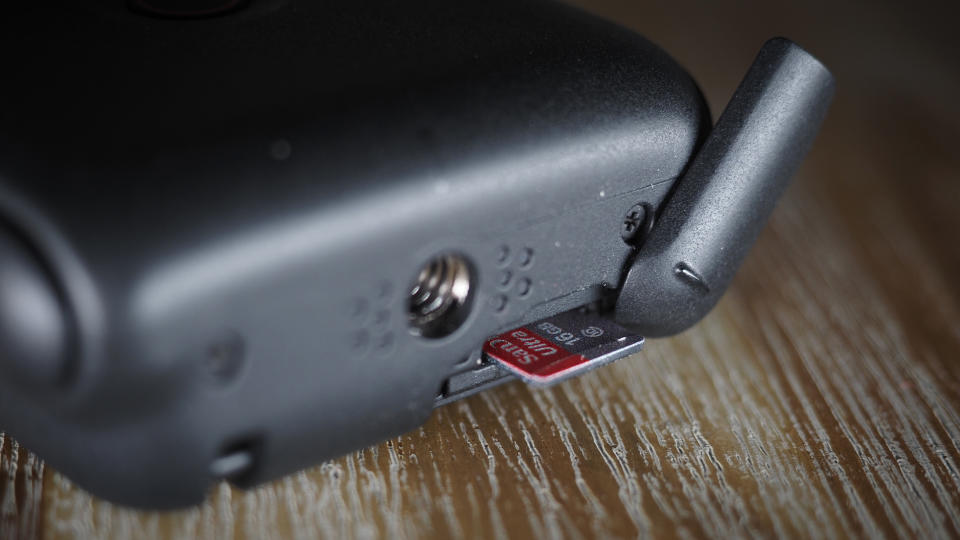
Canon PowerShot V10: Specifications
Sensor: 20.1MP 1-inch back-illuminated CMOS
Lens: 6.6mm f/2.8 (equivalent 18mm for stills, 19mm for video)
AF modes: Face Tracking AF, Specified Frame AF
ISO range: 125 to 6400 FullHD • 125 to 3200 4K
Image stabilization: Movie Digital IS
Max image size: 5,472 x 3,648
Max video resolution: 4K 30p, FullHD 60p (IPB Standard, IPB Light)
Recording limit: 1 hour
Memory card: 1 x microSD
LCD: 2-inch 180° tilting touchscreen
Weight: 211g (with memory card)
Canon PowerShot V10: Key features
The V10 is the first in a new generation of dedicated cameras aimed at vloggers. Specifically, this model is aimed at entry-level vloggers whose content is 99% video – so it is geared in the main towards movie capture.
Its 20.1MP sensor is a modified version of the one found in the Canon PowerShot G7X Mark III, featuring the vlogging mode (with face tracking AF) that was introduced to improve that camera's contrast-detect autofocus system.
The V10's 6.6mm f/2.8 lens has an effective focal length of 18mm for stills (in a 3:2 ratio) and 19mm for video (16:9 or 9:16), with the latter offering 1.5x, 2x or 3x digital zoom. With a minimum aperture of f/8.0, it features an Auto ND Optical filter that's good for 3 stops.

Video can be captured at up to 60p in FullHD (1080p) or 30p in 4K, in IPB Standard or Light modes for both resolutions. Full auto or manual control is available, and digital image stabilization is offered for movies, invoking a small crop into the frame.
There is the option to apply 14 color filters (such as StoryTeal&Orange and RetroGreen), adjust the blue / amber and magenta / green color tones, and a Smoothskin Movie Mode if you want to make your face look plastic.
In terms of connectivity, the Canon PowerShot V10 can wirelessly livestream to YouTube and Facebook (at 3.5 or 6Mbps in FullHD 30p), as well as operate as a UVC / UAB webcam via its USB-C connection, which also charges the integrated battery.
In addition, it can be controlled remotely via Canon's Camera Connect smartphone app or the Canon BR-E1 Bluetooth remote.
Canon PowerShot V10: Build & handling
As you can see in the images below, the V10 is absolutely tiny. Looking not unlike a miniature Ring doorbell, it's the same size as a packet of cigarettes. An amazing bit of context is that it's the same size as the LCD screen on our Canon EOS R5! You can see some images that illustrate its size below.
The camera is remarkably simple. The front of the device features a single button: a big round 'record' button, much as you would find on the screen of your smartphone in camera mode, so there is no confusion as to how to operate it.
The 180° tilting screen is very cute and very good, offering highly responsive touch controls and excellent build quality – though its diminutive size might be problematic for anyone with chunky fingers and / or poor aim.
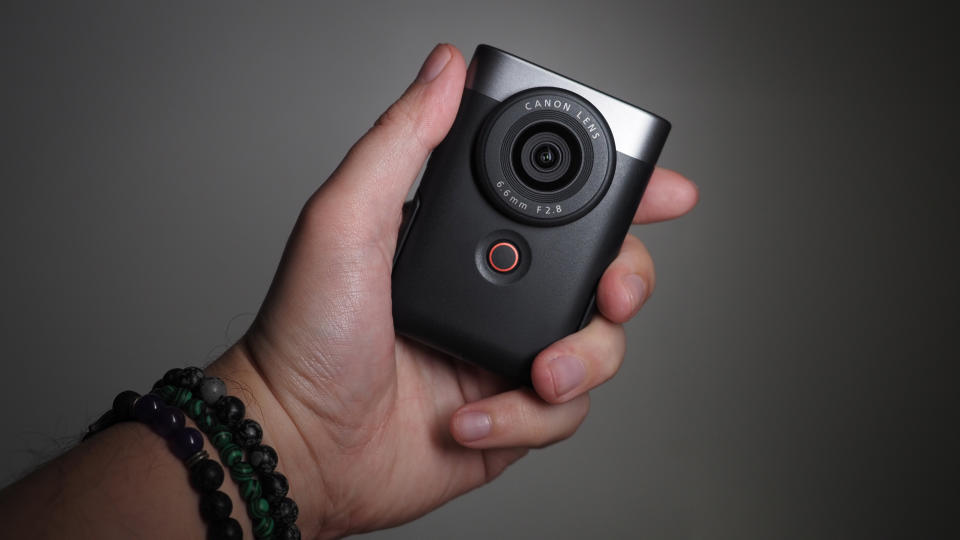
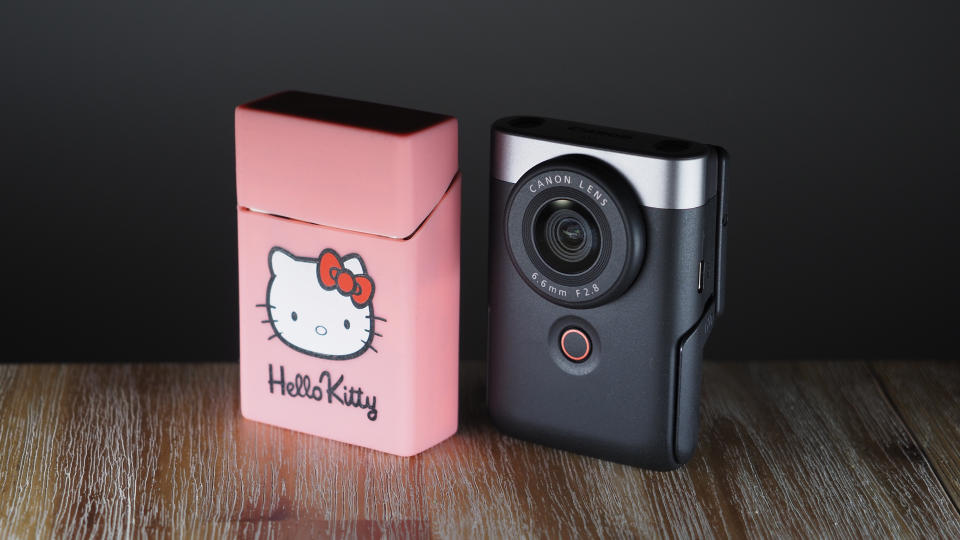
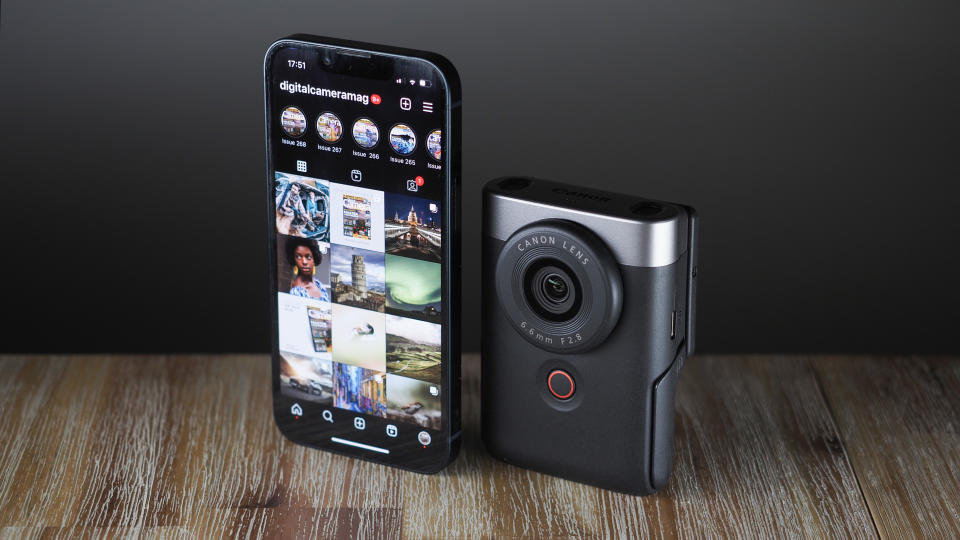
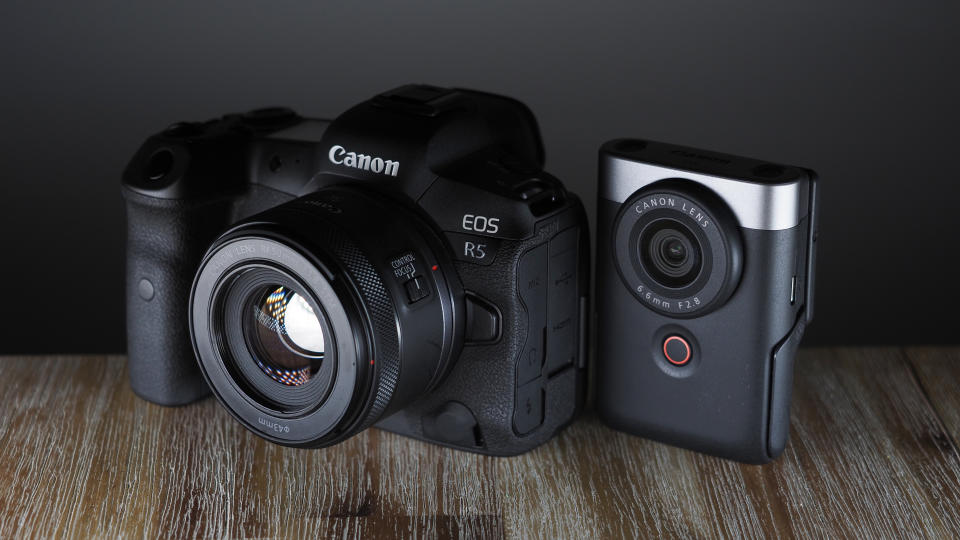
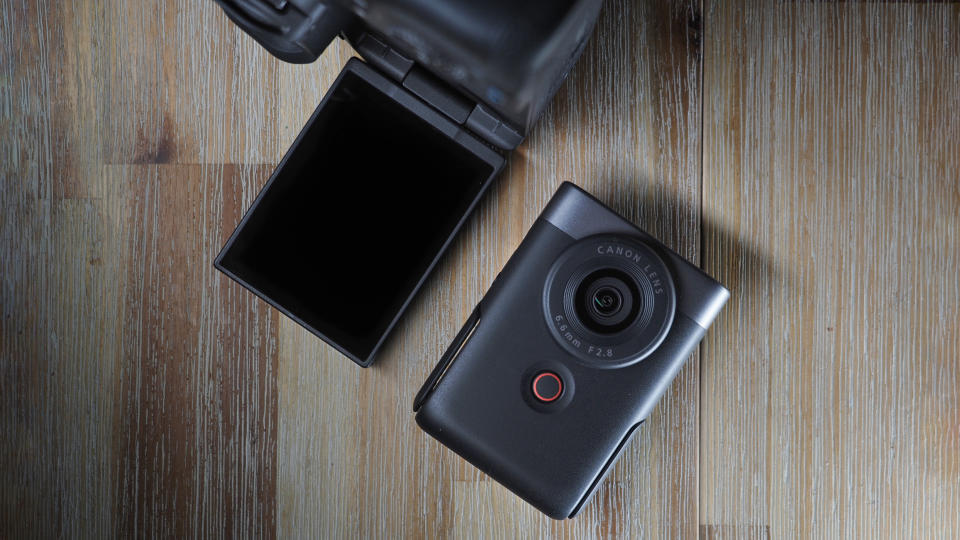
The rear of the camera features just six buttons: power, playback, Menu, 'switch' (between various options, such as photo to video), Set / Q, and a donut-shaped D-Pad for directional control as well as Info, timer and delete.
To camera left is its USB-C port, while to camera right is a micro HDMI and microphone ports. At the bottom of the V10 is a standard tripod mount, as well as an access flap for the microSD card slot.
At the top of the camera are twin, high-quality microphones with digital wind correction, along with three small holes for the built-in speaker.
The V10 isn't weather sealed, in part no doubt because this is an entry-level model, but also to prioritize sound performance (on waterproof cameras, liquid interferes with the microphone's ability to record clean sound).
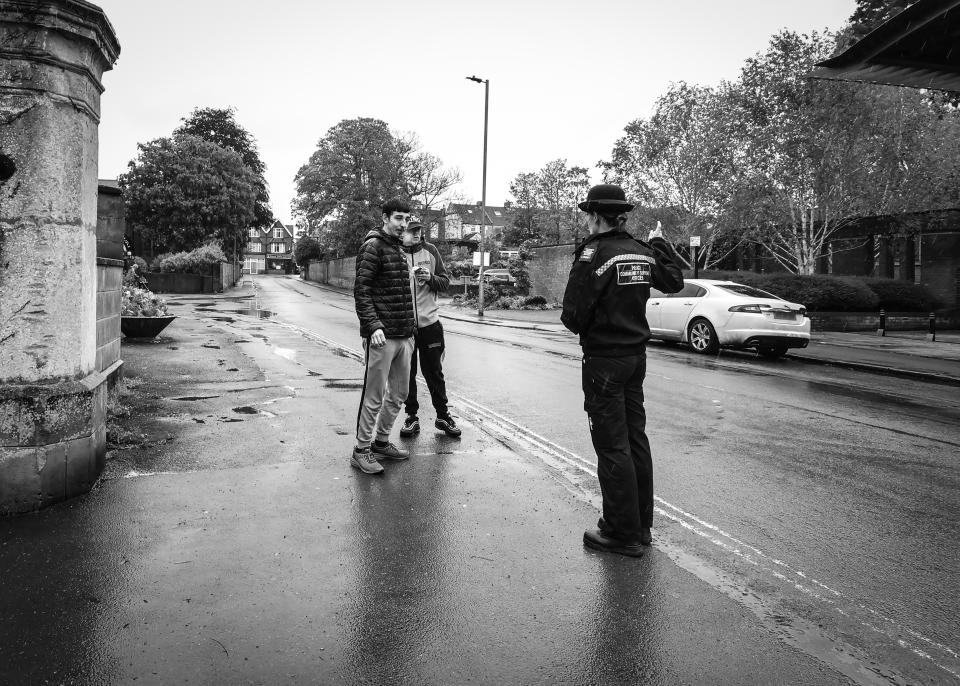
Canon PowerShot V10: Performance
Let's start with the stills. Admittedly, this is not designed to be a stills camera – yet it takes pretty pleasing photographs, especially considering that photo mode is completely automatic (aside from dialing in more or less brightness). Even so, thanks to the 1-inch sensor, there is quite a lot of play in the files for post-production – we found that the V10 files produce really nice black-and-white images.
So then, onto the vlogging side. The best way to test the PowerShot V10's vlogging chops was to film an actual vlog with it – so you can watch that below ("Canon PowerShot V10: Sample vlog!") and see for yourself how it performed. Since this camera is intended as a beginner / highly automatic device, we shot the whole thing using the auto movie mode.
In all, we're very impressed with the video on the V10. Face tracking works excellently, image stabilization is smooth (and with a wide enough field of view for the crop to be unintrusive), the 4K and FullHD quality is perfectly fine (though obviously not going to rival the best cameras for video). However, there were a couple of quirks that we believe could be due to the pre-production nature of the camera's beta firmware.
Firstly, we experienced a slight color temperature shift when changing between standard and stabilized footage in Movie IS mode. We also had a couple of occasions where the autofocus dropped out.

Admittedly, in the first instance, this was because the camera was set to face detect and we turned the camera to face a mirrored wall, with no faces to focus on. However, when we then turned the camera back and placed it right before us, it was unable to find the face directly in front of it.
In addition, when shooting with Movie IS turned on, our footage occasionally suffered some speed /pitch issues with the audio; speech would sometimes sound sped-up, as if the playback speed had been increased (or, perhaps, because the processor was working overtime to stabilize the footage, and the audio occasionally had to catch up and thus increased in speed).
Regardless of whether stabilization was turned on or not, our footage occasionally 'stuttered' when shooting with camera movement such as walking. It wasn't too intrusive, but obviously it's less than ideal for vloggers who frequently present to camera while moving around.
This certainly feels like something that could be firmwared out in the final production camera, or could even be a quirk specific to our pre-release sample. As is, though, we found the V10 to be largely fantastic for shooting while stationary, but issues were introduced when shooting on the move.
Canon PowerShot V10: Sample vlog!
Watch video: A sample vlog shot on a pre-production Canon PowerShot V10
Canon PowerShot V10: Verdict
Despite a few foibles, which we think could be firmware-related, the Canon PowerShot V10 is the vlogging camera that we've been waiting for.
Yes, more advanced content creators who want to plan, prepare and produce their footage will be well served by cameras like the Sony ZV-E1. But for all the folks who just want to film something snappy for TikTok, or to quickly go live on Instagram, or to shoot a story for Facebook…
If you're someone who just wants a camera to be as straightforward as a phone, so you can get great image quality without fiddling with settings or wrestling with lenses, the Canon PowerShot V10 is for you.
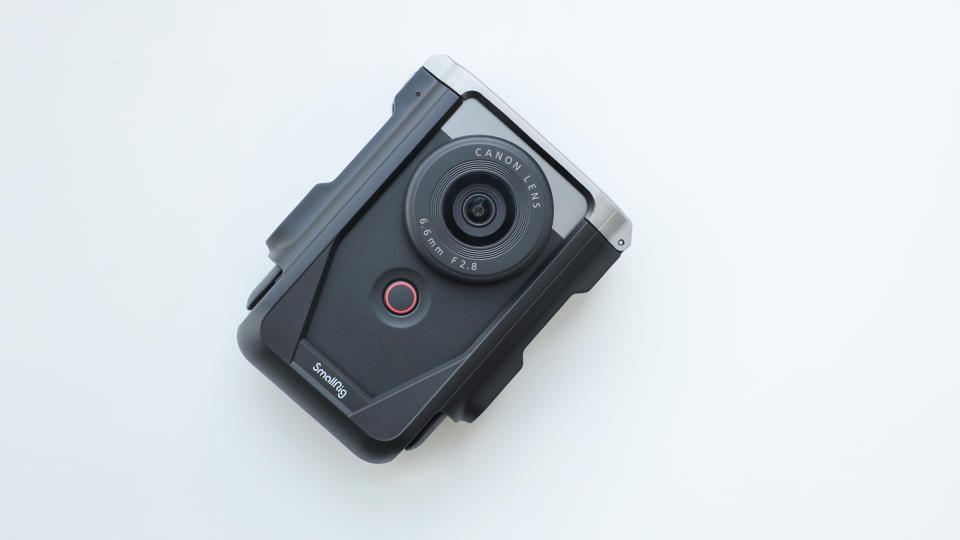
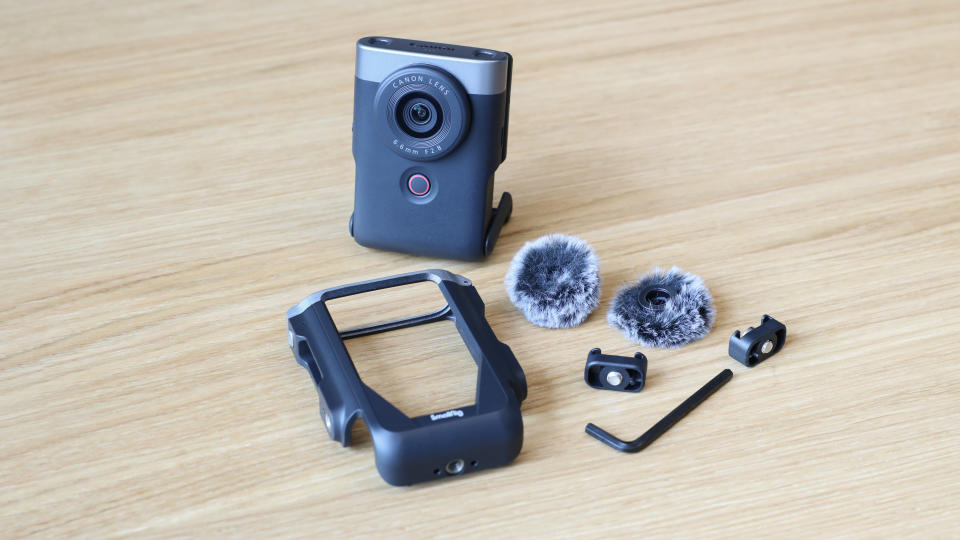
If this review was of interest, you might also like to check out the best microphones for vlogging, the best lenses for vlogging, and our guide on how to vlog.

